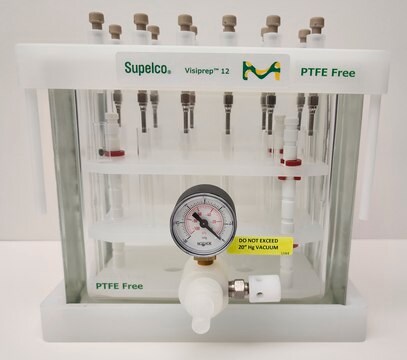W297070
Ácido pirúvico
natural, ≥95%, FG
Sinónimos:
αÁcido α-cetopropiónico, Ácido 2-oxopropiónico
About This Item
Productos recomendados
grade
FG
Halal
Kosher
natural
Quality Level
reg. compliance
EU Regulation 1334/2008 & 178/2002
FDA 21 CFR 172.515
assay
≥95%
greener alternative product characteristics
Less Hazardous Chemical Syntheses
Use of Renewable Feedstocks
Learn more about the Principles of Green Chemistry.
sustainability
Greener Alternative Product
refractive index
n20/D 1.428 (lit.)
bp
165 °C (lit.)
mp
11-12 °C (lit.)
density
1.267 g/mL at 25 °C (lit.)
application(s)
flavors and fragrances
documentation
see Safety & Documentation for available documents
food allergen
no known allergens
greener alternative category
organoleptic
caramel; acidic; sour
SMILES string
CC(=O)C(O)=O
InChI
1S/C3H4O3/c1-2(4)3(5)6/h1H3,(H,5,6)
InChI key
LCTONWCANYUPML-UHFFFAOYSA-N
¿Está buscando productos similares? Visita Guía de comparación de productos
Categorías relacionadas
General description
Application
- Efficient synthesis of L-malic acid by malic enzyme biocatalysis with CO2 fixation.: This study highlights the biocatalytic synthesis of L-malic acid from pyruvic acid, demonstrating an efficient CO2 fixation process. The research opens new pathways for sustainable chemical production using pyruvic acid as a precursor (Shi et al., 2024).
- H(2)S-Powered Nanomotors for Active Therapy of Tumors by Inducing Ferroptosis and Lactate-Pyruvate Axis Disorders.: This study demonstrates the use of hydrogen sulfide-powered nanomotors for tumor therapy, inducing ferroptosis and disrupting the lactate-pyruvate metabolic axis, showcasing innovative applications of pyruvic acid metabolism in cancer treatment (Wang et al., 2024).
Biochem/physiol Actions
signalword
Danger
hcodes
Hazard Classifications
Eye Dam. 1 - Skin Corr. 1C
Storage Class
8A - Combustible corrosive hazardous materials
wgk_germany
WGK 1
flash_point_f
183.2 °F - closed cup
flash_point_c
84 °C - closed cup
ppe
Faceshields, Gloves, Goggles, type ABEK (EN14387) respirator filter
Certificados de análisis (COA)
Busque Certificados de análisis (COA) introduciendo el número de lote del producto. Los números de lote se encuentran en la etiqueta del producto después de las palabras «Lot» o «Batch»
¿Ya tiene este producto?
Encuentre la documentación para los productos que ha comprado recientemente en la Biblioteca de documentos.
Los clientes también vieron
Nuestro equipo de científicos tiene experiencia en todas las áreas de investigación: Ciencias de la vida, Ciencia de los materiales, Síntesis química, Cromatografía, Analítica y muchas otras.
Póngase en contacto con el Servicio técnico









